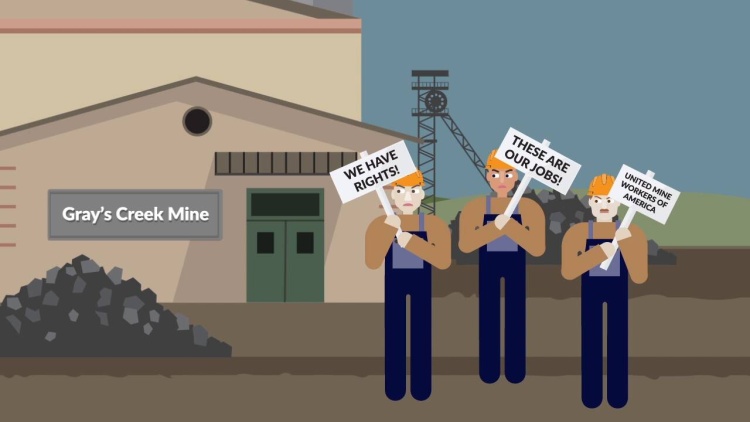United Mine Workers of America v. Gibbs
United States Supreme Court
383 U.S. 715, 86 S. Ct. 1130, 16 L. Ed. 2D 218 (1966)
- Written by DeAnna Swearingen, LLM
Facts
In the spring of 1960, the Tennessee Consolidated Coal Company laid off 100 miners from one of its mines. The workers were members of the United Mine Workers of America (UMW) Local 5881 (defendant). Later that summer, Grundy Company, a subsidiary of the Tennessee Consolidated Coal Company, opened a mine nearby and gave Paul Gibbs (plaintiff) a contract to haul coal from the mine to the railroad. Many of the jobs at the new mine were given to members of the Southern Labor Union. Not long after work began, members of the UMW prevented work from occurring, often resorting to physical violence against workers. They believed that the jobs at the new mine had been promised to members of their union. Gibbs lost his haulage contracts and claimed that he was unable to obtain other hauling contracts as a result of a UMW plan against him. He sued the UMW’s international parent in the United States District Court for the Eastern District of Tennessee. He claimed violations of § 303 of the Labor Management Relations Act as well as Tennessee common law. The jury found for Gibbs under both federal and state law and awarded both compensatory and punitive damages. The trial court eventually set aside the award of damages under the federal claim. The court of appeals affirmed the trial court’s ruling.
Rule of Law
Issue
Holding and Reasoning (Brennan, J.)
What to do next…
Here's why 911,000 law students have relied on our case briefs:
- Written by law professors and practitioners, not other law students. 47,100 briefs, keyed to 997 casebooks. Top-notch customer support.
- The right amount of information, includes the facts, issues, rule of law, holding and reasoning, and any concurrences and dissents.
- Access in your classes, works on your mobile and tablet. Massive library of related video lessons and high quality multiple-choice questions.
- Easy to use, uniform format for every case brief. Written in plain English, not in legalese. Our briefs summarize and simplify; they don’t just repeat the court’s language.





